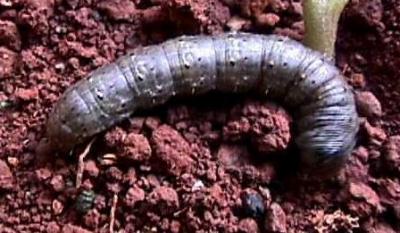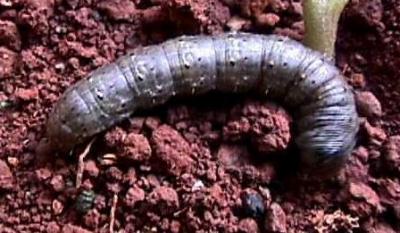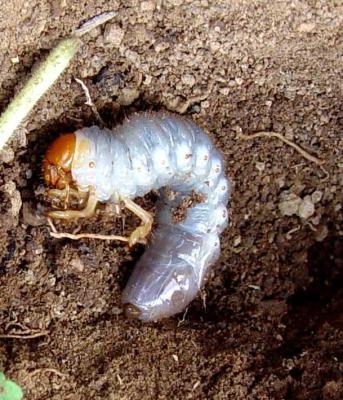


3.1.08 sr: notes ana: match the host plants list with the respective datasheets; although cutworms have many host plants, they are no major pests of all of them, therefore they have not been included in all datasheets of the above mentioned crops; s. by monitoring and decision making: pheromone traps are not available locally. economic threshold for which crop? where? under which conditions?;
Cutworms (Agrotis spp and Spodoptera spp.)
Several species damage sorghum. They may cut off young plants at or slightly below the soil surface. Some feed on above-ground plant parts, and others feed on the roots. Plants with severed stems die, leaf feeding by cutworms causes ragged leaves and feeding on roots may kill young plants or stunt older plants.
Chaffer grubs (Schizonycha spp.) also feed on roots and may kill very young seedlings. Stand loss can occur within 10 days after plants emerge in severely infested fields.
- Harrow and plough field and remove weeds well ahead of planting the crop in the field. Ploughing exposes caterpillars to predators and to desiccation by the sun. If the field is planted soon after land preparation some cutworms may be alive and attack the new crop.
- Inspect soil carefully when preparing land for planting for the presence of cutworms or white grubs.
- Monitor damage by counting damaged and freshly cut young plants.
- Collect and destroy cutworms. Cutworms are found in the soil close to damaged plants at day time. Monitor for cutworms at dawn.
